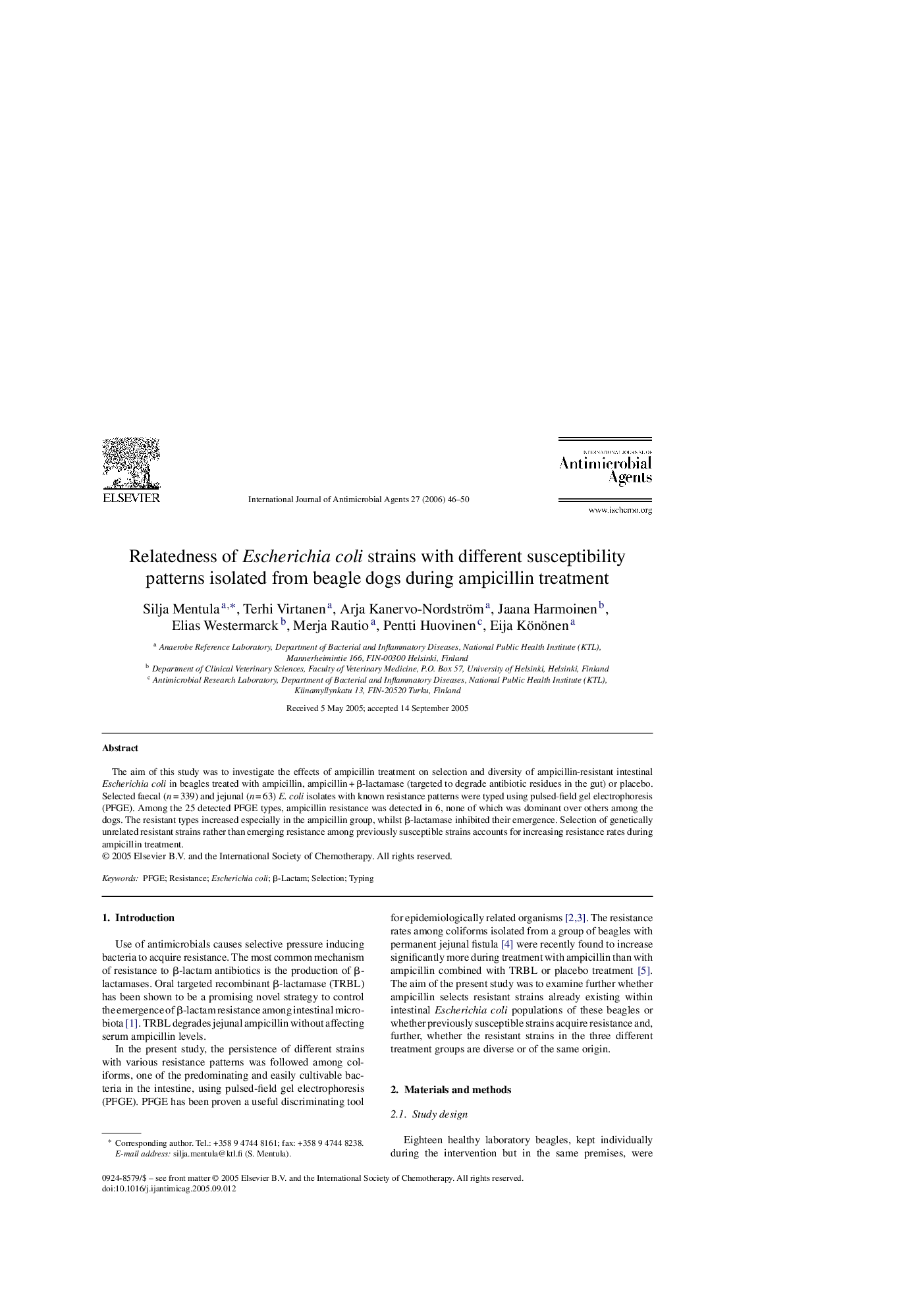| Article ID | Journal | Published Year | Pages | File Type |
|---|---|---|---|---|
| 3361289 | International Journal of Antimicrobial Agents | 2006 | 5 Pages |
The aim of this study was to investigate the effects of ampicillin treatment on selection and diversity of ampicillin-resistant intestinal Escherichia coli in beagles treated with ampicillin, ampicillin + β-lactamase (targeted to degrade antibiotic residues in the gut) or placebo. Selected faecal (n = 339) and jejunal (n = 63) E. coli isolates with known resistance patterns were typed using pulsed-field gel electrophoresis (PFGE). Among the 25 detected PFGE types, ampicillin resistance was detected in 6, none of which was dominant over others among the dogs. The resistant types increased especially in the ampicillin group, whilst β-lactamase inhibited their emergence. Selection of genetically unrelated resistant strains rather than emerging resistance among previously susceptible strains accounts for increasing resistance rates during ampicillin treatment.
